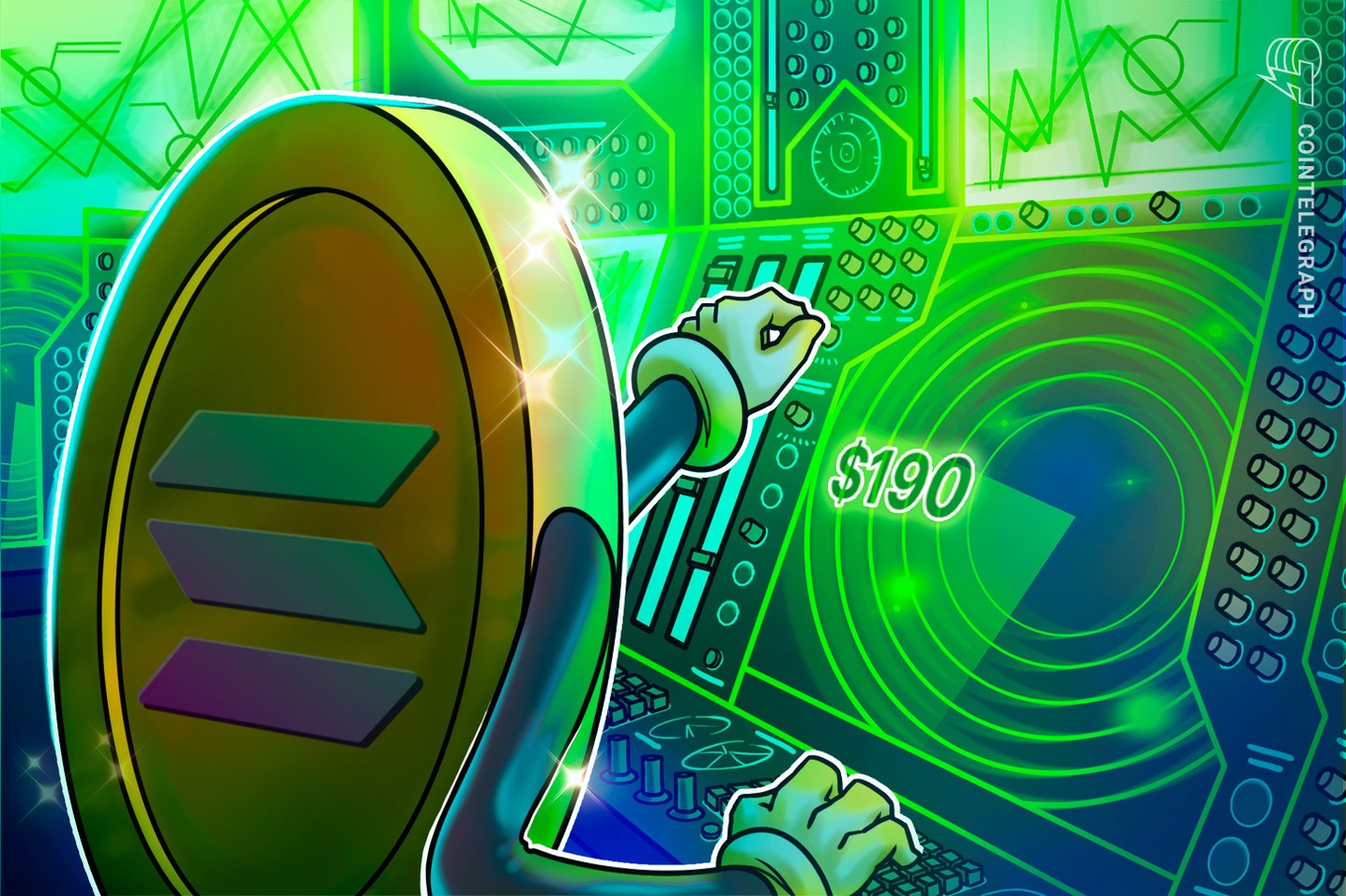Solana to $1K seems unlikely, but network fundamentals forecast $190 SOL

Solana's native token, SOL (SOL), last traded above $190 on July 29, despite an impressive 33.5% gain since retesting the $110 level on Aug. 5. However, the bullish momentum encountered strong resistance at $150. Some analysts suggest that SOL's price is mimicking Ether's (ETH) 2020 movements, which led to its all-time high. Yet, regardless of what the charts indicate, it is crucial to evaluate the current demand for the SOL token before making bold predictions.
2020 ETH fractal says SOL could reach $1,000

Crypto trader and technical analyst Kaleo believes that SOL’s current fractal mirrors Ether’s momentum before its 245% surge above its previous all-time high in 2021, suggesting that SOL could potentially reach $1,000 by 2025. While there’s no issue with setting exceptionally bullish targets, the short-term onchain metrics for the Solana network indicate diminishing activity—hardly a signal that typically precedes a bull run.
Moreover, if SOL were to trade at $1,000, it would imply a market capitalization exceeding $500 billion—a level Ether maintained for less than 40 days during the peak of the late 2021 cycle. For context, only 18 publicly listed global companies currently have valuations above $500 billion, making this scenario seem unlikely even for extremely profitable brands like Costco, Procter & Gamble, and Bank of America.
From a fundamental analysis standpoint, SOL trading at $1,000 appears highly improbable. Nevertheless, this doesn’t rule out the possibility of SOL reaching $300, which would represent a 104% gain from its current $147 level. For starters, several Solana spot exchange-traded fund (ETF) applications are pending regulatory approval in the United States. Although the odds of approval are slim, these efforts differentiate Solana from its competitors.
More importantly, in 2024, Solana overtook BNB Chain (BNB) to become the second-largest blockchain by total value locked (TVL), with $4.8 billion in deposits. While this figure may seem small compared to Ethereum’s $48.8 billion TVL, it is significant enough to foster competition in decentralized exchange (DEX) volumes. For instance, Solana’s DEX aggregate turnover over the past seven days was $9.4 billion, compared to Ethereum’s $10.8 billion.

SOL seems overvalued when compared to Ethereum layer-2 tokens
On the downside, even though Solana’s fees are significantly lower than Ethereum’s average $1.80 transaction fee, users often end up paying comparable amounts due to a high rate of failed transactions and maximal extractable value (MEV). MEV occurs when validators rearrange transactions awaiting inclusion in the next blocks to their benefit. Over the past seven days, Ethereum’s network fees totaled $13.7 million, according to DefiLlama, while Solana registered $8.4 million.
However, comparing Solana to Ethereum’s base layer might not be entirely fair, given the differences in centralization and fee structures. A more appropriate comparison would be Ethereum’s layer-2 ecosystem. A recent thread on the X social network by Blockspace analytics firm growthepie.xyz offers some intriguing insights in this regard. For instance, Ethereum’s layer-2 ecosystem holds $9.7 billion in stablecoin deposits—more than the combined totals of Solana and BNB Chain.
Additionally, the number of active addresses over a seven-day period for Ethereum’s layer-2 ecosystem nearly matches Solana’s 1.6 million. Meanwhile, the combined fully diluted valuation of Ethereum’s layer-2 tokens—including Optimism (OP), Arbitrum (ARB), Polygon (MATIC), Mantle (MNT), Starknet (STRK), ZKsync (ZK), Immutable X (IMX), and others—stands at $31 billion, making it over 60% less expensive than Solana’s $85 billion total valuation.
Ultimately, one could argue that Solana’s reliance on airdrops and memecoin launches, while potentially generating demand for SOL during retail-driven rallies, is unlikely to be sustainable in the long term. However, solid growth in projects like Helium, Jupiter, and even the PayPal USD stablecoin on Solana indicates that the path for SOL to reach $190 remains open, albeit unlikely in the near term given the stiff competition from Ethereum layer-2 solutions.
Related News
- $1.6B port investment could revive El Salvador’s Bitcoin City plans
- Canada needs to overhaul crypto regulations —Coinbase exec
- No more range anxiety: How DePIN transforms the EV charging ecosystem
- FBI will ‘neither confirm nor deny’ the existence of Satoshi records
- Coinbase expands crypto services to Hawaii
- Hive Digital sales up 36% as Bitcoin miner forays into AI compute
- Blockchain-based elections a real option with zero-knowledge tech
- Kamala Harris may continue the Biden administration's crypto crackdown
- Bitcoin buyers wait below $58K as Japan wipes out record stocks crash
- Bitget Wallet overtakes MetaMask by downloads — CryptoRank
© 2025 DeFi.io